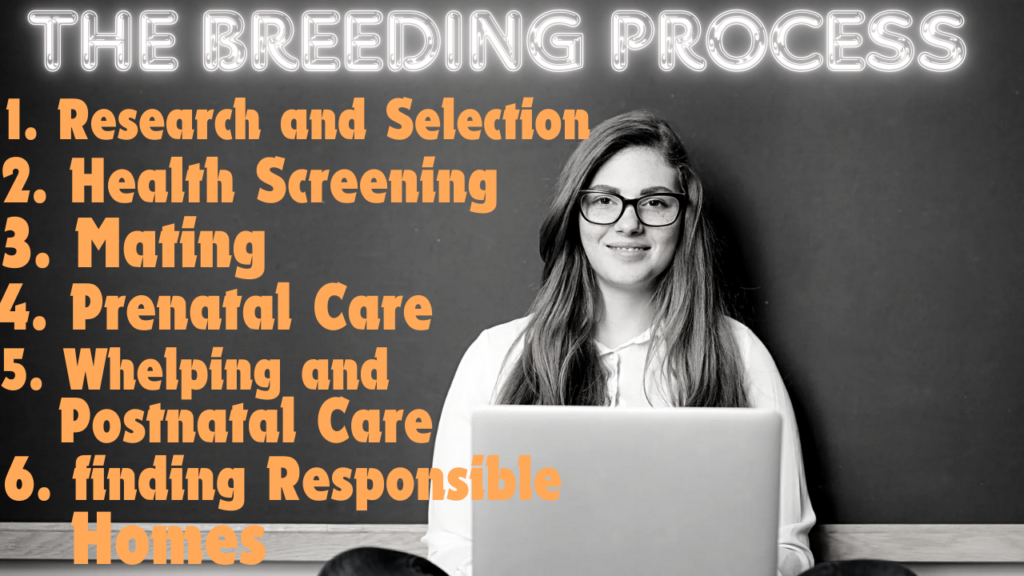In the world of pet ownership, breeders play a crucial role in the propagation of various animal species, particularly domesticated pets. As responsible caretakers of their animals, breeders are tasked with ensuring the health, temperament, and genetic integrity of the animals they produce. This article delves into the multifaceted responsibilities and ethical considerations that define a breeder’s role.
Defining a Breeder
A breeder is an individual or organization that engages in the selective breeding of animals to achieve specific characteristics or traits. This can apply to a variety of species, including dogs, cats, birds, and even livestock. The ultimate goal of a breeder is to produce healthy offspring that conform to breed standards while also possessing desirable traits such as temperament, appearance, and functionality.
Types of Breeders
Breeders can be categorized into several types, each with unique objectives and methodologies:
1. Hobby Breeders
Hobby breeders are often passionate individuals who breed animals primarily for personal satisfaction or as a hobby. They may not operate on a large scale but often have a deep understanding of their chosen breed. These breeders typically focus on quality over quantity, striving to improve the breed’s standards while maintaining ethical practices.
2. Professional Breeders
Professional breeders, in contrast, operate as a business. They are more likely to be involved in dog shows, competitions, or other formal events that require adherence to specific breed standards. These breeders invest significant resources into their breeding programs, including genetic testing and health screenings, to ensure the quality and viability of their animals.
“As a professional breeder, you can enhance your skills by referring to The Comprehensive Guide to Becoming a Successful Cat Breeder-2024.”
3. Backyard Breeders
Backyard breeders often operate informally, breeding animals without the same level of knowledge or commitment to ethical practices as hobby or professional breeders. This approach can lead to numerous health and behavioral issues in the offspring, as these breeders may lack the necessary experience and resources to ensure proper breeding practices.
4. Puppy Mills
Puppy mills represent the most unethical side of breeding. These operations prioritize profit over the well-being of animals, often leading to overcrowded and unsanitary conditions. Puppies from these mills are frequently sold with significant health problems, underscoring the importance of choosing a responsible breeder.
The Breeding Process
The breeding process is not merely about mating animals; it involves careful planning and execution. Here’s a closer look at the steps involved:
1. Research and Selection
Before breeding, responsible breeders conduct extensive research on the breed, including understanding genetic predispositions to certain health issues. They select breeding pairs based on health, temperament, and conformance to breed standards.
2. Health Screening
One of the most critical responsibilities of a breeder is to ensure that both the male and female animals are healthy. This often involves comprehensive health screenings, including tests for hereditary diseases, vaccinations, and overall health evaluations.
3. Mating
Once suitable pairs are identified, the mating process is carefully planned to maximize the chances of successful conception. This may involve monitoring the female’s heat cycle and employing various mating techniques, whether natural or artificial insemination.
4. Prenatal Care
After successful mating, prenatal care becomes crucial. This includes proper nutrition, regular veterinary check-ups, and creating a stress-free environment for the pregnant female.
5. Whelping and Postnatal Care
The birthing process, known as whelping, requires close monitoring. Breeders should be ready to intervene if any complications occur. Postnatal care includes ensuring that the mother and her puppies are healthy, feeding, and socializing the puppies appropriately.
6. Finding Responsible Homes
Once the puppies are old enough to be placed in homes, breeders must ensure they find responsible and loving owners. This may involve interviews, home visits, and providing education on the breed’s needs.

Ethical Considerations in Breeding
1. Commitment to Health and Welfare
Ethical breeders prioritize the health and welfare of their animals above all else. This commitment often translates into higher standards of care, from genetic testing to providing suitable living conditions.
2. Transparency
Responsible breeders are transparent about their breeding practices and willing to provide prospective owners with health clearances and lineage information. This transparency fosters trust and ensures that buyers are making informed decisions.
3. Avoiding Overpopulation
By practicing responsible breeding, breeders play a role in combating pet overpopulation. This includes not only producing healthy litters but also promoting spaying and neutering among pet owners.
4. Educating Potential Owners
A significant aspect of ethical breeding involves educating potential pet owners about the responsibilities of pet ownership. This ensures that the animals are placed in homes where they will be cared for throughout their lives.
Conclusion
In summary, breeders are essential to the development and maintenance of animal breeds. Their responsibilities encompass not just the act of breeding, but also a comprehensive approach to animal welfare, health, and ethical practices. Choosing a responsible breeder can make a significant difference in the lives of pets and their future owners. By understanding the complexities involved in breeding, prospective pet owners can make informed choices that contribute to the well-being of their future companions.
#: If you want to know in more detail, be sure to check out this resource


